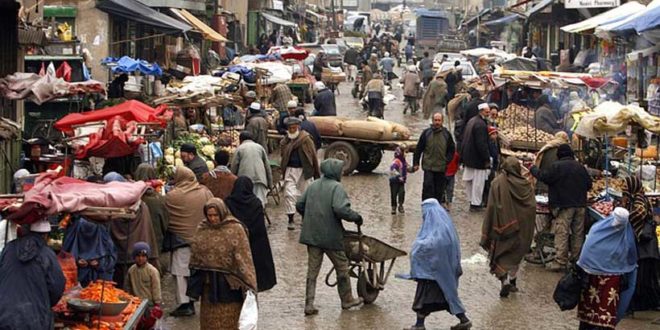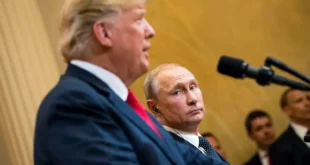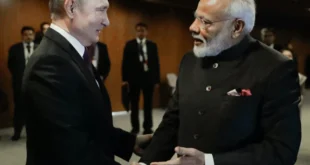Irfan Takalvi
As the world grapples with COVID-19 and ponders over its ultimate toll, it may actually turn out to be a pandemic plus kind of a scenario for some people, countries and regions.
Lingering conflicts, already prevalent diseases and natural disasters – on top of a host of political and governance issues – may actually render novel coronavirus an exacerbated threat for people in certain parts of the world.
Think about countries such as Afghanistan, Yemen, Syria and Libya. Years and decades of unending armed conflict means inadequate, if at all, healthcare apparatus in most parts of these countries. Even a very low rate of COVID-infections would simply be beyond the capacity of the system to handle, leaving countless people to die haplessly.
Take Afghanistan, for instance. While the number of infections right now is low at around 400 with around a dozen deaths reported, it is emerging that some 2,00,000 refugees and migrant workers returning from Iran are not being tested – raising fears that a wave of large scale infections may just be around the corner. In case of Yemen, the grave extent of hunger amongst a large chunk of population also means dangerously weak levels of resistance against any illness. The situation is by no means any better in war zones of Syria and Libya.
Refugees and Temporarily Displaced Persons (TDPs) face added vulnerabilities. Millions of Syrians in Turkey and Afghans in Iran and Pakistan live in crowded, ill-equipped camps. So, perhaps worse, is the case for hundreds of thousands of Rohingya in Bangladesh. Poor living conditions and little-to-no access to quality healthcare may translate into much higher risk, even with a small-scale outbreak of this hard to contain virus. Social distancing and isolation are unthinkable in such unfortunate settings.
In Pakistan, this is also the start of time when the cases of Dengue fever begin. For past several years, every year the country loses dozens of lives with thousands of infections crippling the services at Out-Patient Departments (OPDs) of public hospitals at their peak in summer. Right now, OPDs of public hospitals are already closed to safeguard spread of COVID-19. It is a nightmare to imagine the peak of the two difficult-to-deal-with diseases striking together, or even one following the other, in a short span of time.
Over past few months, countries from East Africa to Middle East to South-West Asia have faced devastating locusts’ attacks on their standing crops – worst ever since 1993. Food crops of millions of hectares across these three regions have either been devastated already, or on verge of being lost to these little flying creatures. Unhindered supply of food items can hardly be overemphasized in times of a pandemic. Unless taken proper care of, locusts remain a serious threat to food security of tens of millions of people.
More importantly, experts are warning that millions of eggs have already been laid by locusts in countries such as Pakistan, and new mating / reproductive seasons also loom. This tells us that coming cotton and maize crops would also be in danger, mostly so in the poorest parts of affected countries where farming is the lone livelihood.
Oppressed populations are another group facing added danger. The world is well aware of the virtual curfew in India Held Kashmir (IHK) for over eight months now, since August 5, 2019. Situation in occupied Palestinian Territories is hardly any different either. Strict controls over medical supplies and essential items, and sources of information, are all set to multiply the impact of a pandemic once it outbreaks in such environments.
And it sadly is not the case only for occupied territories of Kashmir and Palestine. Ruling Bhartia Janta Party’s (BJP) attitude towards 200 million plus Indian Muslims – especially recent laws aimed at their exclusion – make the Muslim population of India all the more threatened when a pandemic breaks out in such a vast, overly populous but ill-equipped country. Reports of Muslims truckers transporting essential supplies in this hard time have already starting to emerge, and public statements of politicians are fanning the fire of anti-Muslim communalism.
And last but not the least, crippling sanctions on certain countries. It has widely been reported internationally that US sanctions are severely limiting Iran’s response – amongst one of the worst affected countries – towards COVID-19. Tehran is not able to easily import essential supplies for its fight against the virus that has already killed some 4000 Iranians.
Now it is coming to the fore that US sanctions are also hampering supply of medical and humanitarian aid not only to Iran but also to Cuba and Venezuela – particularly the aid being sent by China and its corporate. This indeed is a serious humanitarian dilemma for the countries subjected to sanction. Good to note however that voices, international as well as from within the US, are starting to be raised on inhumane impact of these restrictions.
Upended risks call for special attention, on part of governments and international institutions. Let us hope the world can realize this, coming up with timely and targeted response.
 Geostrategic Media Political Commentary, Analysis, Security, Defense
Geostrategic Media Political Commentary, Analysis, Security, Defense





